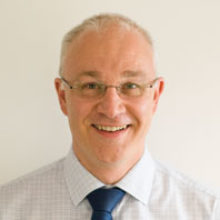From the Chief Executive
Issue: Engaging Microbiology
17 May 2022 article

A pandemic does not end with a closing ceremony. It gradually becomes relatively less important in public discourse and consciousness as other priorities seem more important. The SARS-CoV-2 virus that causes COVID-19 has not gone away, or indeed stopped being a serious problem for many individual people around the world, but at a population level we are spending dramatically less of our time and energy worrying about its immediate effects.
We can enjoy physically seeing one another again and take advantage of the kind of interaction that can only be done in person. Annual Conference 2022 in Belfast, where 1,400 members of the microbiology community came together for the first time in three years, was a wonderful way to celebrate. The amazing Prize Lectures showcased a diverse range of impactful microbiology, the brilliant poster sessions, where early career microbiologists had their first chance to tell us about their work, the workshops, social events, offered oral presentations, professional development sessions, celebratory reception for the 75th anniversary of our flagship journal Microbiology. These and all the other elements served to emphasise the Microbiology Society’s principal goal: to develop, expand and strengthen the networks available to our members so that you can generate new knowledge about microbes and ensure that it is shared with other communities.
As we look forward to a host of other in-person events throughout the year – Focused Meetings, the Early Career Microbiologists’ Forum Summer Conference, the Sir Howard Dalton Young Microbiologist of the Year finals and the Society’s showcase event – I know that we will all value those opportunities to share, communicate and enjoy friendship and science. I am particularly looking forward to the Focused Meeting on Protein Secretion at the Host–Pathogen Interface in Belfast in November, because it will celebrate 50 years of the Irish Division, a world-class example of a supportive and ambitious community.
But as we come out of the initial grip of the pandemic, unsure whether the virus will show a resurgence when conditions change or a new variant emerges, microbiologists must not lose sight of what we have learned over the last two years. Among several other requests, way back in the autumn of 2020, the UK government asked us to rapidly bring together (via Zoom, obviously) experts from various institutions in the English Midlands. Ministers and civil servants were trying to establish what became the Rosalind Franklin Laboratory in Leamington Spa. We convened a group of members who gave their time and expertise, which I hope was helpful. They did not necessarily agree with everything that was planned, but they did everything they were able to make sure it would work as well as it possibly could. Recently, when I was in Leicester with the President, Del Besra, for his first Roadshow event, I was lucky enough to meet a scientist who is working in the Rosalind Franklin Lab, and it was good to see the final outcome that had developed from the Microbiology Society’s contribution all those months ago.
We do not know when it will come or what it will be, but there will be another pandemic and the world will once again look to the microbiology community for answers. No doubt the UK government will once again ask the Microbiology Society to help find some of the expertise it needs.
If I have learned anything over the last two years, it is how strong the microbiology community is, with a real sense of identity, a willingness to support one another, and a passionate desire to ensure that expertise is communicated and applied for the public good. In doing so, a key factor in success is how microbiologists in universities, industry, government service and hospitals have worked together, each group bringing different strengths to the table. The Microbiology Society’s founders recognised the value that comes from bringing together a diverse range of scientists from different sectors and disciplines. That broad diversity, reflected in the Microbiology Society’s current membership, will remain one of our great strengths in the coming years.
Peter Cotgreave
Chief Executive
